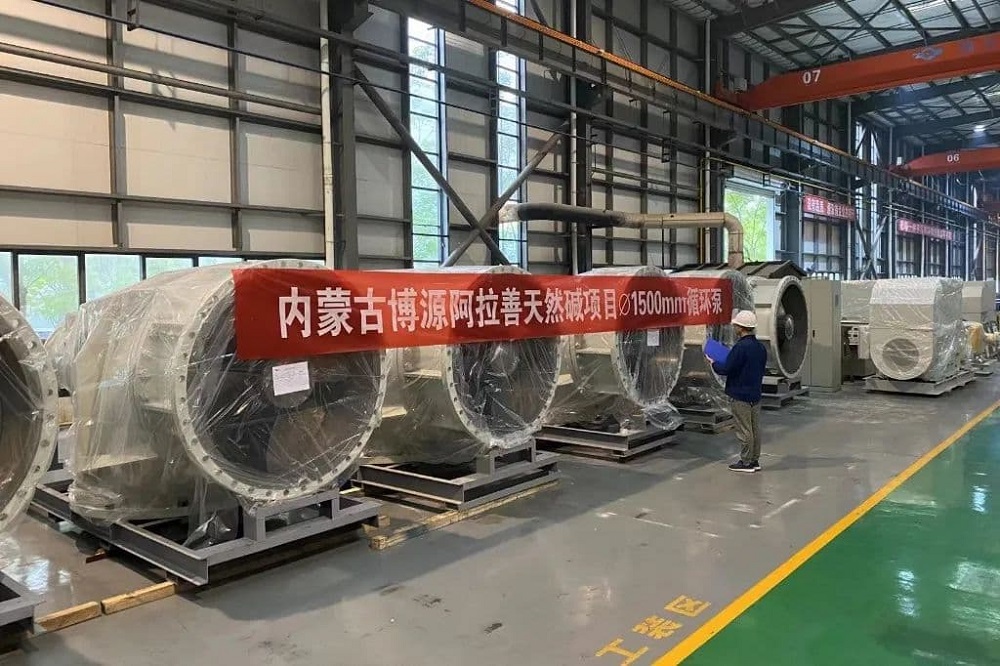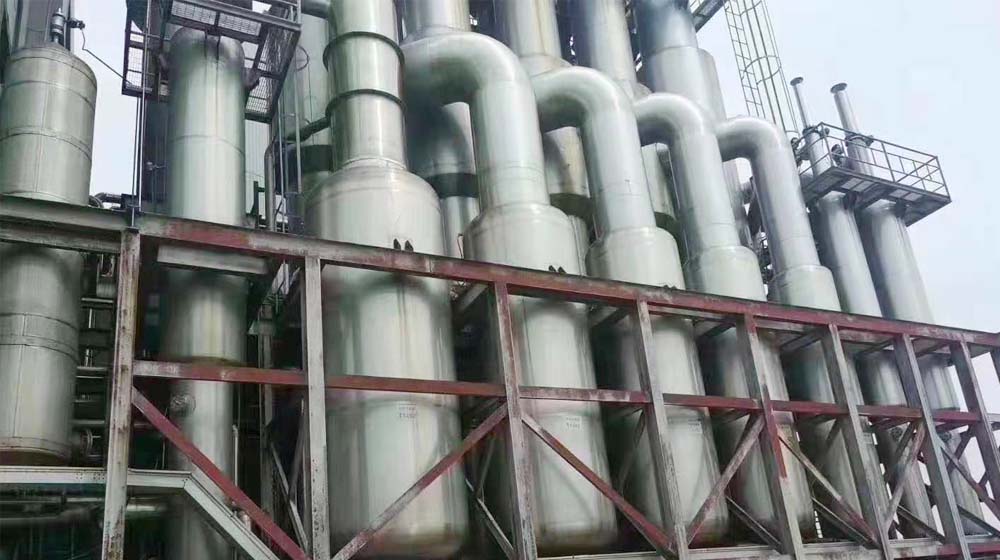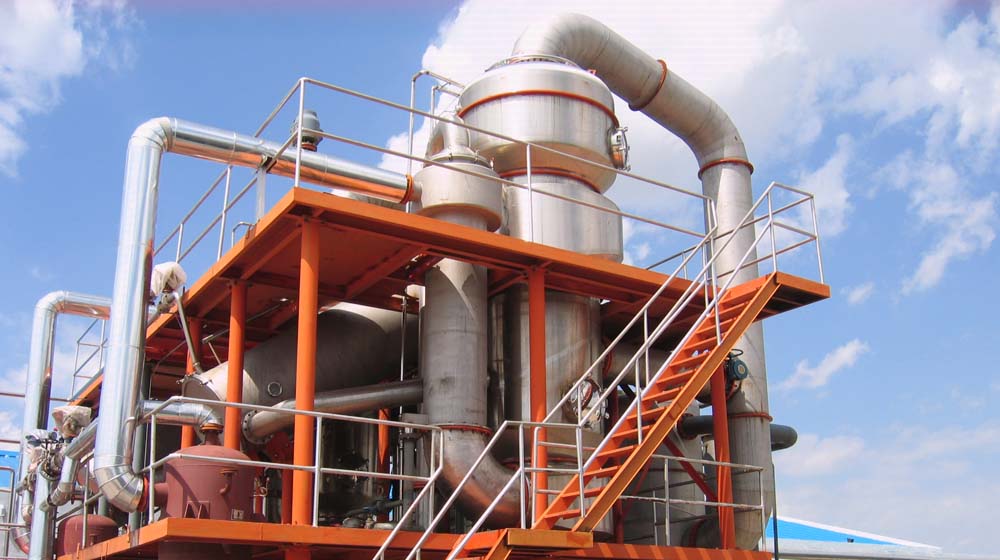Introduction
In industries ranging from wastewater treatment to chemical manufacturing, axial flow pumps have become indispensable for optimizing evaporator performance. These pumps are especially critical in applications like Mechanical Vapor Recompression (MVR) systems, multi-effect evaporators, and evaporation crystallization processes, where energy efficiency, high flow rates, and corrosion resistance are non-negotiable. From the chlor-alkali industry to lithium battery material production, axial flow pumps drive productivity and sustainability. This article dives into their role, benefits, and why industries worldwide rely on them for demanding evaporation tasks.
What Are Axial Flow Pumps?
Axial flow pumps are dynamic pumps designed to move fluids parallel to the pump shaft using propeller-like impellers. They excel in applications requiring high flow rates at low pressure (low head), making them ideal for large-volume fluid circulation in evaporators. Their compact, energy-efficient design ensures minimal energy waste, even in harsh industrial environments.
Key Features:
- High flow rates (up to 100,000 m³/h).
- Low energy consumption due to streamlined fluid dynamics.
- Corrosion-resistant materials (e.g., titanium, duplex stainless steel).
- Operational versatility in high-temperature and aggressive chemical environments.
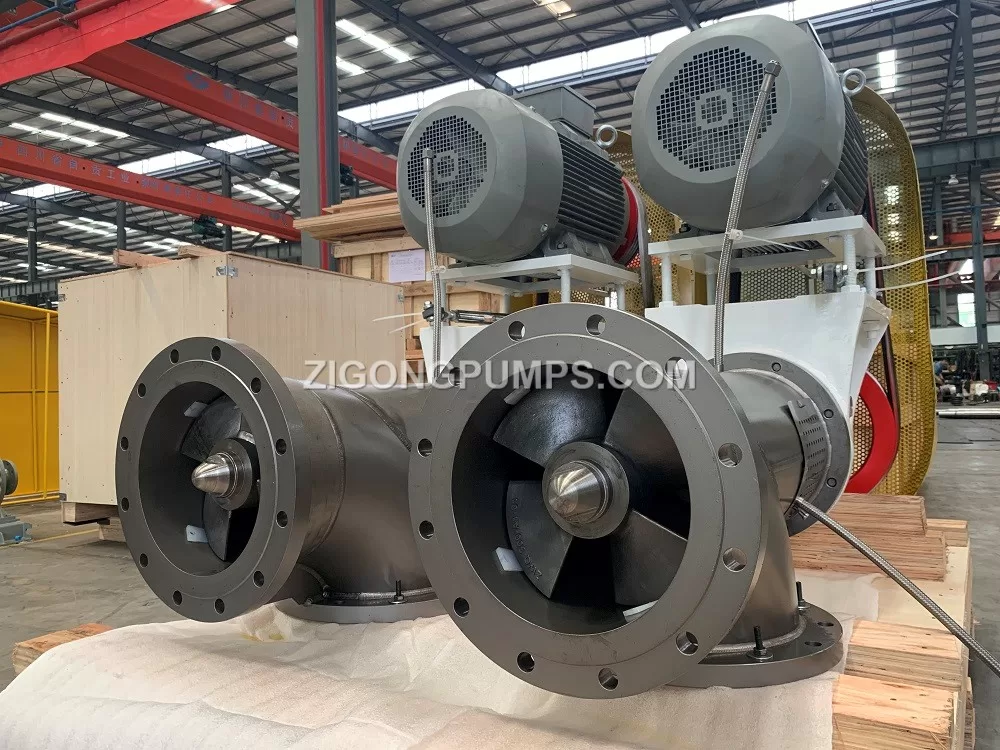
Axial Flow Pumps in Industrial Evaporation & Crystallization
Evaporators are central to industries that concentrate liquids, recover solvents, or crystallize materials. Axial flow pumps enhance these processes by:
- Enabling Efficient MVR Systems
In MVR wastewater treatment, axial pumps circulate hot, corrosive brine or wastewater while recovering vapor for reuse. Their ability to handle high temperatures (up to 150°C+) and aggressive fluids reduces energy costs by up to 60% compared to traditional boiling methods. - Optimizing Multi-Effect Evaporators
Multi-effect evaporators rely on axial pumps to transfer fluids between stages, maintaining consistent pressure and flow. This ensures efficient heat transfer and maximizes solvent removal in industries like fertilizer production and aluminum oxide refining. - Supporting Evaporation Crystallization
In processes like lithium carbonate extraction or chlor-alkali brine concentration, axial pumps prevent scaling and clogging by ensuring uniform fluid flow. This minimizes downtime and improves crystal quality.
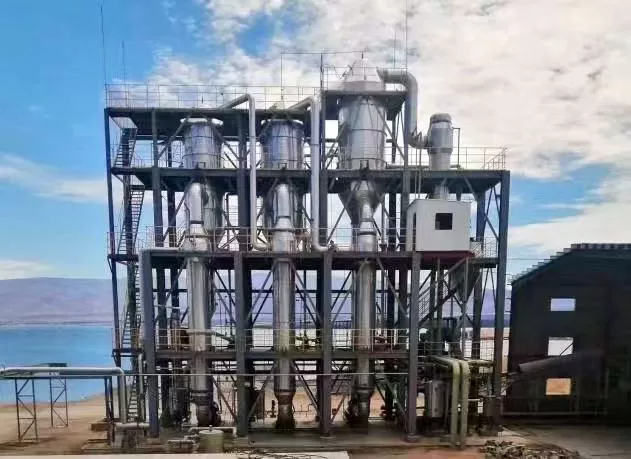
Industry-Specific Applications of Axial Flow Pumps
1.Chlor-Alkali Industry
- Role: Circulating caustic soda, chlorine, and brine solutions.
- Benefit: Titanium or super duplex steel pumps resist chlorine-induced corrosion, ensuring long-term reliability.
2. Lithium Battery Material Production
- Role: Concentrating lithium-rich brines and recycling solvents.
- Benefit: High flow rates accelerate lithium carbonate crystallization, critical for meeting EV battery demand.
3. Fertilizer Industry
- Role: Evaporating ammonium nitrate or urea solutions.
- Benefit: Reduced energy costs in multi-effect evaporators improve profit margins.
4. Aluminum Oxide (Alumina) Refining
- Role: Handling abrasive bauxite slurry during Bayer process evaporation.
- Benefit: Robust impeller designs withstand wear, extending pump lifespan.
5. Wastewater Treatment (MVR Systems)
- Role: Treating industrial effluents with high salt content.
- Benefit: Zero-liquid discharge (ZLD) compliance through efficient vapor recovery.

Top Benefits of Axial Flow Pumps in Evaporators
- Energy Savings: Slash operational costs by 30–50% in MVR and multi-effect systems.
- Scalability: Suitable for small pilot plants to large-scale industrial evaporators.
- Low Maintenance: Fewer moving parts and corrosion-resistant materials reduce downtime.
- Process Consistency: Prevent hotspots, scaling, and uneven crystallization.
How to Select the Right Axial Flow Pump
- Fluid Properties: Match materials to fluid corrosiveness (e.g., titanium for chlor-alkali, SS316 for lithium).
- Temperature & Pressure: Verify operational limits for high-temperature evaporators.
- Flow Rate Requirements: Size pumps based on evaporator capacity (e.g., 500–10,000 m³/h).
- Certifications: Opt for ISO 5198-compliant pumps for guaranteed performance.
FAQs: Axial Flow Pumps in Industrial Evaporators
Q1: Why are axial pumps preferred over centrifugal pumps in MVR systems?
A: Axial pumps handle low-pressure, high-flow demands of MVR evaporators efficiently, whereas centrifugal pumps lose efficiency at low heads. Axial Flow Pump vs Centrifugal Pump: Which is Best for Chemical Processing?
Q2: Can these pumps manage abrasive slurries in alumina refining?
A: Yes—specialized impellers with hardened coatings or rubber linings resist erosion from abrasive particles.
Q3: How do axial pumps improve lithium extraction efficiency?
A: Rapid fluid circulation reduces crystallization time, ensuring higher purity and yield of lithium compounds.
Q4: What materials suit chlor-alkali applications?
A: Titanium or super duplex stainless steel pumps resist chlorine and caustic corrosion.
Conclusion
Axial flow pumps are the backbone of modern industrial evaporators, delivering unmatched efficiency in evaporation crystallization, MVR wastewater treatment, and multi-effect systems. By integrating these pumps, industries like lithium production, chlor-alkali, and fertilizer manufacturing achieve faster processing, lower energy costs, and compliance with environmental standards. As demand grows for sustainable chemical processes, axial flow pumps will remain a cornerstone of industrial innovation.
